#microsoft teams app developers
Explore tagged Tumblr posts
Text
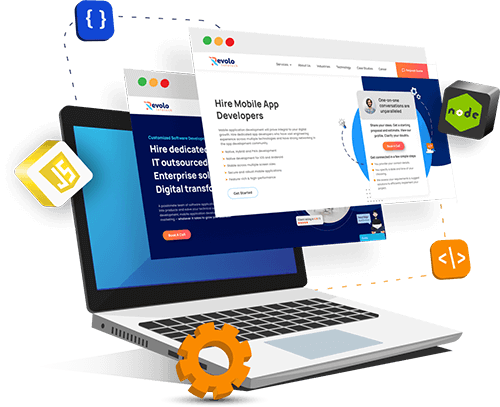
Microsoft Teams App Developers
0 notes
Text
How Custom Microsoft Teams Apps Boost Your Business Productivity
Personalized Microsoft Teams apps can be the secret sauce to bring your teamwork to the highest level! They are customized applications created by tech wizards to assist you in getting the most value from Microsoft Teams. Suppose you're looking to enhance collaboration between your team members, streamline your workflows, or even integrate with other applications for business and tools. In that case, customized Microsoft Teams apps can be the best solution. The Microsoft Teams apps can be customized to meet your company's particular requirements, making them an effective instrument for increasing the efficiency and effectiveness of your business. Customized Microsoft Teams apps can help you reduce time and accomplish tasks quicker by automating mundane tasks and providing easy access to information and services.
Visit us:
#Custom Microsoft Teams Apps#Business Productivity#Microsoft Teams apps#software development#web development
0 notes
Text
Emphasizing Teams App Development and Microsoft Teams Specialists
Introduction
In the rapidly evolving digital era, mobile applications have become a fundamental part of our daily routines, influencing how we communicate, work, and interact with the world around us. Within the vast expanse of India’s tech landscape, three major cities — Mumbai, Bangalore, and Delhi — have emerged as epicenters of mobile app innovation. In this blog, we’ll explore the thriving mobile app development scenes in these cities, with a particular emphasis on Teams app development and the skilled Microsoft Teams developers driving this evolution.
Mobile App Development in Mumbai:
The dynamic city of Mumbai, often dubbed India’s financial hub, is abuzz with technological innovation. Within its bustling streets lie mobile app development companies in Mumbai renowned for crafting engaging, user-centric applications across various industries. These companies harness their creativity and technical prowess to transform ideas into seamless, functional apps that cater to diverse user needs.
Mobile App Development in Bangalore:
Bangalore, the Silicon Valley of India, is synonymous with technological prowess and entrepreneurial spirit. The city is home to a multitude of mobile app development in Bangalore, each distinguished by its ability to merge cutting-edge technologies with artistic design principles. These companies are adept at developing apps that push boundaries, providing users with enhanced experiences and streamlined functionalities.
Mobile App Development in Delhi:
As the nation’s capital, Delhi boasts a thriving information technology sector that is home to numerous mobile app development companies in Delhi. These firms excel in creating adaptable, user-friendly apps that cater to an array of industries and sectors. Their collective skill set extends to integrating modern technologies into app development processes, resulting in solutions that are both innovative and practical.
The Essence of Teams App Development:
In a world increasingly defined by remote work and digital collaboration, platforms like Microsoft Teams have become integral to maintaining effective communication and productivity. Teams app development involves the creation of tailor-made applications that seamlessly integrate with Microsoft Teams, enhancing its functionality and serving unique business requirements. This specialized field enables businesses to optimize their collaborative processes and elevate their overall efficiency.
The Role of Microsoft Teams Developers:
Behind the scenes of every successful Teams app lies the expertise of Microsoft Teams developers. These professionals possess an intricate understanding of the Teams ecosystem, allowing them to conceptualize, design, and implement custom applications that align with specific business needs. Their skill set empowers businesses to harness the full potential of Microsoft Teams, transforming it into a versatile platform that enhances communication, project management, and overall teamwork.
In Conclusion:
As mobile applications continue to reshape how we interact with technology, the mobile app development landscapes of Mumbai, Bangalore, and Delhi stand as pillars of innovation. These cities house a diverse array of development companies, each contributing to the ever-evolving app ecosystem. Within this context, the realm of Teams app development and the proficiency of Microsoft Teams developers shine as vital components, enabling businesses to navigate the complexities of modern collaboration and communication with ease.
#mobile app development company in mumbai#mobile app development company in bangalore#mobile app development company in delhi#teams app development#microsoft teams developer
0 notes
Text
#Hire Microsoft Developers#Hire Certified Microsoft Developers Team#Microsoft Developers for Hire#Hire Silverlight Developer#Hire .NET MVC Developer#Hire ASP.NET Core Developer#Hire Microsoft Azure Developers#Microsoft Development Services#Microsoft Web Development#Microsoft App Development#Microsoft Technologies
0 notes
Text
ever wonder why spotify/discord/teams desktop apps kind of suck?
i don't do a lot of long form posts but. I realized that so many people aren't aware that a lot of the enshittification of using computers in the past decade or so has a lot to do with embedded webapps becoming so frequently used instead of creating native programs. and boy do i have some thoughts about this.
for those who are not blessed/cursed with computers knowledge Basically most (graphical) programs used to be native programs (ever since we started widely using a graphical interface instead of just a text-based terminal). these are apps that feel like when you open up the settings on your computer, and one of the factors that make windows and mac programs look different (bc they use a different design language!) this was the standard for a long long time - your emails were served to you in a special email application like thunderbird or outlook, your documents were processed in something like microsoft word (again. On your own computer!). same goes for calendars, calculators, spreadsheets, and a whole bunch more - crucially, your computer didn't depend on the internet to do basic things, but being connected to the web was very much an appreciated luxury!
that leads us to the eventual rise of webapps that we are all so painfully familiar with today - gmail dot com/outlook, google docs, google/microsoft calendar, and so on. as html/css/js technology grew beyond just displaying text images and such, it became clear that it could be a lot more convenient to just run programs on some server somewhere, and serve the front end on a web interface for anyone to use. this is really very convenient!!!! it Also means a huge concentration of power (notice how suddenly google is one company providing you the SERVICE) - you're renting instead of owning. which means google is your landlord - the services you use every day are first and foremost means of hitting the year over year profit quota. its a pretty sweet deal to have a free email account in exchange for ads! email accounts used to be paid (simply because the provider had to store your emails somewhere. which takes up storage space which is physical hard drives), but now the standard as of hotmail/yahoo/gmail is to just provide a free service and shove ads in as much as you need to.
webapps can do a lot of things, but they didn't immediately replace software like skype or code editors or music players - software that requires more heavy system interaction or snappy audio/visual responses. in 2013, the electron framework came out - a way of packaging up a bundle of html/css/js into a neat little crossplatform application that could be downloaded and run like any other native application. there were significant upsides to this - web developers could suddenly use their webapp skills to build desktop applications that ran on any computer as long as it could support chrome*! the first applications to be built on electron were the late code editor atom (rest in peace), but soon a whole lot of companies took note! some notable contemporary applications that use electron, or a similar webapp-embedded-in-a-little-chrome as a base are:
microsoft teams
notion
vscode
discord
spotify
anyone! who has paid even a little bit of attention to their computer - especially when using older/budget computers - know just how much having chrome open can slow down your computer (firefox as well to a lesser extent. because its just built better <3)
whenever you have one of these programs open on your computer, it's running in a one-tab chrome browser. there is a whole extra chrome open just to run your discord. if you have discord, spotify, and notion open all at once, along with chrome itself, that's four chromes. needless to say, this uses a LOT of resources to deliver applications that are often much less polished and less integrated with the rest of the operating system. it also means that if you have no internet connection, sometimes the apps straight up do not work, since much of them rely heavily on being connected to their servers, where the heavy lifting is done.
taking this idea to the very furthest is the concept of chromebooks - dinky little laptops that were created to only run a web browser and webapps - simply a vessel to access the google dot com mothership. they have gotten better at running offline android/linux applications, but often the $200 chromebooks that are bought in bulk have almost no processing power of their own - why would you even need it? you have everything you could possibly need in the warm embrace of google!
all in all the average person in the modern age, using computers in the mainstream way, owns very little of their means of computing.
i started this post as a rant about the electron/webapp framework because i think that it sucks and it displaces proper programs. and now ive swiveled into getting pissed off at software services which is in honestly the core issue. and i think things can be better!!!!!!!!!!! but to think about better computing culture one has to imagine living outside of capitalism.
i'm not the one to try to explain permacomputing specifically because there's already wonderful literature ^ but if anything here interested you, read this!!!!!!!!!! there is a beautiful world where computers live for decades and do less but do it well. and you just own it. come frolic with me Okay ? :]
*when i say chrome i technically mean chromium. but functionally it's same thing
347 notes
·
View notes
Text
Microsoft raced to put generative AI at the heart of its systems. Ask a question about an upcoming meeting and the company’s Copilot AI system can pull answers from your emails, Teams chats, and files—a potential productivity boon. But these exact processes can also be abused by hackers.
Today at the Black Hat security conference in Las Vegas, researcher Michael Bargury is demonstrating five proof-of-concept ways that Copilot, which runs on its Microsoft 365 apps, such as Word, can be manipulated by malicious attackers, including using it to provide false references to files, exfiltrate some private data, and dodge Microsoft’s security protections.
One of the most alarming displays, arguably, is Bargury’s ability to turn the AI into an automatic spear-phishing machine. Dubbed LOLCopilot, the red-teaming code Bargury created can—crucially, once a hacker has access to someone’s work email—use Copilot to see who you email regularly, draft a message mimicking your writing style (including emoji use), and send a personalized blast that can include a malicious link or attached malware.
“I can do this with everyone you have ever spoken to, and I can send hundreds of emails on your behalf,” says Bargury, the cofounder and CTO of security company Zenity, who published his findings alongside videos showing how Copilot could be abused. “A hacker would spend days crafting the right email to get you to click on it, but they can generate hundreds of these emails in a few minutes.”
That demonstration, as with other attacks created by Bargury, broadly works by using the large language model (LLM) as designed: typing written questions to access data the AI can retrieve. However, it can produce malicious results by including additional data or instructions to perform certain actions. The research highlights some of the challenges of connecting AI systems to corporate data and what can happen when “untrusted” outside data is thrown into the mix—particularly when the AI answers with what could look like legitimate results.
Among the other attacks created by Bargury is a demonstration of how a hacker—who, again, must already have hijacked an email account—can gain access to sensitive information, such as people’s salaries, without triggering Microsoft’s protections for sensitive files. When asking for the data, Bargury’s prompt demands the system does not provide references to the files data is taken from. “A bit of bullying does help,” Bargury says.
In other instances, he shows how an attacker—who doesn’t have access to email accounts but poisons the AI’s database by sending it a malicious email—can manipulate answers about banking information to provide their own bank details. “Every time you give AI access to data, that is a way for an attacker to get in,” Bargury says.
Another demo shows how an external hacker could get some limited information about whether an upcoming company earnings call will be good or bad, while the final instance, Bargury says, turns Copilot into a “malicious insider” by providing users with links to phishing websites.
Phillip Misner, head of AI incident detection and response at Microsoft, says the company appreciates Bargury identifying the vulnerability and says it has been working with him to assess the findings. “The risks of post-compromise abuse of AI are similar to other post-compromise techniques,” Misner says. “Security prevention and monitoring across environments and identities help mitigate or stop such behaviors.”
As generative AI systems, such as OpenAI’s ChatGPT, Microsoft’s Copilot, and Google’s Gemini, have developed in the past two years, they’ve moved onto a trajectory where they may eventually be completing tasks for people, like booking meetings or online shopping. However, security researchers have consistently highlighted that allowing external data into AI systems, such as through emails or accessing content from websites, creates security risks through indirect prompt injection and poisoning attacks.
“I think it’s not that well understood how much more effective an attacker can actually become now,” says Johann Rehberger, a security researcher and red team director, who has extensively demonstrated security weaknesses in AI systems. “What we have to be worried [about] now is actually what is the LLM producing and sending out to the user.”
Bargury says Microsoft has put a lot of effort into protecting its Copilot system from prompt injection attacks, but he says he found ways to exploit it by unraveling how the system is built. This included extracting the internal system prompt, he says, and working out how it can access enterprise resources and the techniques it uses to do so. “You talk to Copilot and it’s a limited conversation, because Microsoft has put a lot of controls,” he says. “But once you use a few magic words, it opens up and you can do whatever you want.”
Rehberger broadly warns that some data issues are linked to the long-standing problem of companies allowing too many employees access to files and not properly setting access permissions across their organizations. “Now imagine you put Copilot on top of that problem,” Rehberger says. He says he has used AI systems to search for common passwords, such as Password123, and it has returned results from within companies.
Both Rehberger and Bargury say there needs to be more focus on monitoring what an AI produces and sends out to a user. “The risk is about how AI interacts with your environment, how it interacts with your data, how it performs operations on your behalf,” Bargury says. “You need to figure out what the AI agent does on a user's behalf. And does that make sense with what the user actually asked for.”
25 notes
·
View notes
Text
Question about browsers
I'm asking this because I think I have developed a use for browsers that is different to the normal person, and I want to see if that's true.
It started on my phone, actually, in which I Firefox (previously Chrome) for ONLY fanfiction, and Safari for everything else. Firefox is in a folder with my Kindle, Books, and Comixology apps.
Then I got two jobs that both use Microsoft (Teams, Sharepoint, etc.), and if I am logged into them both on the same browser they won't let me access ANYTHING because I don't have permission with one of my accounts, even though I do with the other. So I use Edge for one job and Opera for the other.
I use Firefox for my personal browser because of the security features.
I use Chrome for school, because I use Speechify for all of my readings and their web app only works on Chrome. (Speechify my beloved, I would not be capable of grad school without you.)
So I just want to know: is this normal?
#firefox#Chrome#safari#mozilla#holy shit you can edit tags on desktop now???????????#I pretty much only use tumblr on my phone wthhhhhhh#since when???
95 notes
·
View notes
Text
“How ICT helped you at home, in school and in communicating with people”
In numerous aspects of daily life, including communication with others and at home and school, ICT (information and communication technology) is essential. ICT can be useful in the following ways in each of these areas:
1. At home Information Access: Information about interesting subjects is easier to obtain thanks to ICT. People may study items, read news, find recipes, and pick up new skills online. Entertainment: A variety of entertainment alternatives, such as streaming music and movies and playing online games, are made possible by ICT. Organization: ICT technologies that aid in time management and task, bill, and reminder organization include calendars, to-do list applications, and virtual assistants. Online Shopping: Time is saved and convenience is added when shopping and using services like groceries thanks to ICT.
ICT (Information and Communication Technology) plays a vital role in various aspects of daily life, from home and school to communication with others. Here’s how ICT can help in each of these areas: 2. In School Enhanced Learning: ICT tools like educational websites, digital textbooks, and interactive software enhance understanding. Platforms like Google Classroom, Zoom, and other learning management systems make it easy for teachers to share resources and engage students in virtual settings. Research: ICT provides access to a vast amount of online academic materials and resources, making it easier for students to complete assignments and projects. Collaboration: ICT fosters collaboration among students, enabling them to work together on projects using shared documents and online tools. Skill Development: Familiarity with ICT tools prepares students for technology-driven workplaces, giving them a competitive edge in their future careers.
3. In Communication Instant Connectivity: ICT tools like email, messaging apps, and video calls help people stay connected with family and friends, regardless of distance. Social Networking: Social media platforms allow people to build networks, share life events, and maintain connections with friends, family, and professional contacts. Work Communication: ICT enables remote working and collaboration through tools like Slack, Microsoft Teams, and Zoom, which is especially valuable for productivity and efficiency. Language Translation: ICT tools like Google Translate help people communicate across language barriers, making global communication more accessible.
2 notes
·
View notes
Text
ChatGPT has a Windows app now

🟦 OpenAI is testing a ChatGPT app for Windows— but it’s only available to paid users for now. You can download an early version of the app from then Microsoft Store. Just like the Mac version of the app. ChatGPT on Windows lets you ask the AI-powered chatbot questions in a dedicated window that you can keep open alongside your apps. You can quickly access the app by using the Alt + Space shortcut.
🟦 It also lets you upload files and photos to ChatGPT and comes with access to a preview of OpenAI’s o1 model capable of “reasoning.” The app is still missing some capabilities, however, such as advanced voice mode. Shortly after OpenAI launched its ChatGPT app on Mac in June, a developer spotted a security, vulnerability that stored conversations in plain text. OpenAI has since fixed this issue and now encrypts locally stored data. Even though only ChatGPT Plus, Enterprise, Team, and Edu subscribers can use the app on Windows, OpenAI says it plans on bringing it to everyone later this year.
#artificial intelligence#technology#coding#ai#open ai#tech news#tech world#technews#ai hardware#ai model#chatgpt#google#machine learning#microsoft#microblog#windows 11
2 notes
·
View notes
Text
A Comprehensive Guide to Developing Custom Microsoft Teams Apps: Enhancing Collaboration and Workflows
Introduction:
In the digital age, businesses need to leverage cutting-edge technologies to enhance productivity and streamline workflows. Microsoft Teams is a powerful collaboration platform that allows teams to work together seamlessly, and developing custom apps for Teams can take your business to the next level. Custom apps can automate workflows, improve communication, and boost productivity. In this article, we will explore the advantages of developing custom Microsoft Teams apps and the key features of Microsoft Teams app development services. We will also look at some of the top app development companies in Australia and India that specialize in Microsoft Teams app development and offer tips for hiring the right React Native or React JS developer for your project.
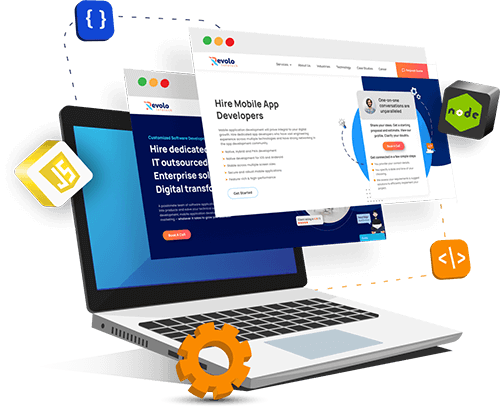
Advantages of Developing Custom Microsoft Teams Apps: Microsoft Teams offers a variety of features to enhance collaboration, including messaging, video conferencing, and file sharing. However, custom apps can take these features to the next level. Some advantages of developing custom Microsoft Teams apps include:
Enhancing collaboration: Custom apps can improve collaboration by enabling teams to work together seamlessly, no matter where they are located. Custom apps can also provide real-time updates and notifications to keep everyone on the same page.
Automating workflows: Custom apps can automate repetitive tasks, freeing up time for more important work. For example, a custom app can automatically update a project management tool with new tasks created in Teams.
Improving communication: Custom apps can provide new ways for teams to communicate, such as through interactive dashboards or chatbots. This can reduce the need for back-and-forth emails and enhance the speed and accuracy of communication.

Key Features of Microsoft Teams App Development Services: Microsoft Teams app development services provide a range of features to help businesses create custom apps for their Teams workflows. Some key features include:
App templates: Microsoft Teams app development services offer a range of app templates that can be customized to fit your business needs. These templates include project management tools, HR apps, and more.
Customization options: Microsoft Teams app development services provide a range of customization options to tailor your app to your business needs. These options include the ability to add custom branding, integrate with third-party tools, and more.
Security: Microsoft Teams app development services ensure that your custom app is secure and compliant with industry standards. This includes data encryption, user authentication, and more.

Top App Development Companies in Australia and India: There are many app development companies in Australia and India that specialize in Microsoft Teams app development. Some of the top companies include:
Revolo Source: Revolo Source is an app development company based in India that specializes in Microsoft Teams app development. They have experience developing apps for a range of businesses, from small startups to large enterprises.
Appello Software: Appello Software is an app development company based in Australia that specializes in custom Microsoft Teams apps. They have experience developing apps for a range of industries, including healthcare, finance, and logistics.
Zealous System: Zealous System is an app development company based in Australia and India that specializes in Microsoft Teams app development. They have experience developing custom apps for a range of industries, including healthcare, finance, and education.

Hiring a React Native or React JS Developer: React Native and React JS are popular development frameworks that can be used to create custom Microsoft Teams apps. When hiring a React Native or React JS developer, it is important to consider the following:
Experience: Look for a developer with experience developing custom apps for Microsoft Teams using React Native or React JS.
Portfolio: Ask to see a portfolio of previous work to get an idea of their skills and expertise.
Communication skills: Make sure the developer has strong communication skills, as they will be working closely with your team to develop the custom app.
Collaboration: Look for a developer who is willing to collaborate with your team to understand your business needs and provide solutions.
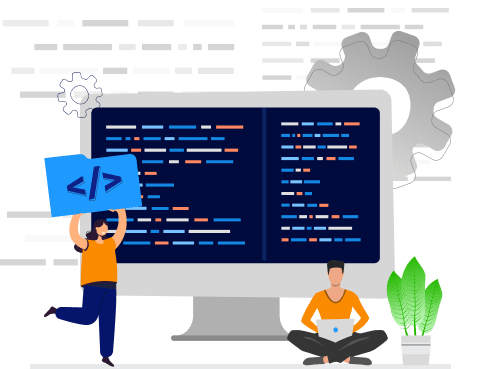
Conclusion:
Developing custom Microsoft Teams apps can enhance collaboration, automate workflows, and improve communication. Microsoft Teams app development services provide a range of features to create custom apps that meet your business needs. When choosing an app development company, consider their experience and expertise in Microsoft Teams app development. Hiring the right React Native or React JS developer is also crucial to the success of your project. By leveraging custom Microsoft Teams apps, businesses can take their collaboration and workflows to the next level.
#microsoft teams app development services#microsoft teams app developers#microsoft teams app development#app development company australia#app developers in australia#react natice developer#react js developer
0 notes
Text
“From the river to the sea…”
Let’s talk about such a scenario in which Israel is erased.
7:00 a.m.: You wake up and try to unlock your iPhone to read email, but it won’t unlock.
Why? Because Face ID is Israeli tech. It was invented by PrimeSense, and acquired by Apple.
7:30 a.m.: Before heading to work, you go into your garden to make sure your grass is being watered.
Nope, can’t use drip irrigation. That’s an Israeli invention.
8:00 a.m.: You get into your car and try to turn on Waze so you can know where there is traffic.
It won’t open because Waze is Israeli.
8:30 a.m.: On the way to work, you almost lose control of your car because it didn’t notify you that you were swerving out of your lane.
That’s because Mobileye is based in Jerusalem.
9:00 a.m.: “Fine,” you say to yourself, “I don’t need Waze or Mobileye anyway. Soon my car will be autonomous.”
Nope. Innoviz is Israeli.
9:30 a.m.: You get to work and get ready to have your first meeting on Microsoft Teams. It won’t work.
All the AI on Teams? Built in Herzliya.
10:00 a.m.: You try to use your USB thumb drive on your computer. No go.
Thumb drives (a.k.a. flash drives or memory sticks) were invented by Dov Moran at Msystems, and acquired by SanDisk.
11:00 a.m.: You need to access some classified information but it’s behind a firewall. No way around it.
Firewall technology? Invented in Israel.
12:00 p.m.: You look out your office window and the sky is so beautiful, you want to take a photo.
Nope. Smartphone dual lens technology was invented by Israeli company Corephotonics.
1:00 p.m.: You have a lot of work to do. You fire up your PC but it won’t boot up.
Is it running on an Intel processor? Oh, yeah, that was designed in Israel.
2:00 p.m.: You’re getting really frustrated. Nothing is working! So you turn to Google, but even that won’t work.
Google builds many of its products in Tel Aviv.
3:00 p.m.: You decide to FaceTime your wife to vent your frustrations. Why won’t it work?!
Because voice over IP was invented in Israel.
3:30 p.m.: You’re really losing patience, so you go to your favorite instant messenger program to speak to a friend.
Nope, instant messaging was invented in Israel.
4:00 p.m.: You give up and decide to focus on work exclusively – you need to build a website.
Sorry, Wix is Israeli. You can’t use it.
5:00 p.m.: You get a call from your doctor. He wants you to come in because he saw something troubling in your last check-up. He wants to use the PillCam.
You have to inform him that’s a no-go. That’s Israeli tech.
6:00 p.m.: Since your car is unreliable, you decide to take public transportation. But your Moovit app won’t load for some reason.
It’s Israeli.
6:30 p.m.: You decide to do some shopping for a new car because it’s time to go electric.
Sorry. Better Place CEO Shai Agassi pioneered the infrastructure for electric cars in 2012.
7:00 p.m.: You get a call with bad news – your relative was recently diagnosed with cancer. He needs your help finding the best treatment.
Unfortunately, you can’t help him because many of the leading cancer treatments were developed in Israel by companies like Novocure and Vascular Biogenics.
8:00 p.m.: You’ve had a hard day and just want to chill out in front of your social media feeds. But none of your feeds will load.
Meta, parent company of Facebook, Instagram, and WhatsApp, has many offices in Israel.
9:00 p.m.: Time for a late dinner. You want to prepare alternative meats or dairy products.
Your supermarket doesn’t sell them, however, because Redefine Meat and Remilk are Israeli startups.
10:30 p.m.: You decide to read your book, but you can’t find your glasses anywhere.
That’s because you bought them on GlassesUSA, an Israeli company.
11:00 p.m.: Your last resort: Watch some TV. Wait – your Samsung TV won’t turn on!
Samsung has many offices in Israel, including Samsung Next, a fund that invests in tech.
You go to sleep and hope tomorrow will be a better day.
Here, try this new rhyme instead: “From the river to the sea, if Israel is gone, what will be with me?!”
7 notes
·
View notes
Text
Emphasizing Teams App Development and Microsoft Teams Specialists
Introduction
In the rapidly evolving digital era, mobile applications have become a fundamental part of our daily routines, influencing how we communicate, work, and interact with the world around us. Within the vast expanse of India’s tech landscape, three major cities — Mumbai, Bangalore, and Delhi — have emerged as epicenters of mobile app innovation. In this blog, we’ll explore the thriving mobile app development scenes in these cities, with a particular emphasis on Teams app development and the skilled Microsoft Teams developers driving this evolution.
Mobile App Development in Mumbai:
The dynamic city of Mumbai, often dubbed India’s financial hub, is abuzz with technological innovation. Within its bustling streets lie mobile app development companies renowned for crafting engaging, user-centric applications across various industries. These companies harness their creativity and technical prowess to transform ideas into seamless, functional apps that cater to diverse user needs.
Mobile App Development in Bangalore:
Bangalore, the Silicon Valley of India, is synonymous with technological prowess and entrepreneurial spirit. The city is home to a multitude of mobile app development firms, each distinguished by its ability to merge cutting-edge technologies with artistic design principles. These companies are adept at developing apps that push boundaries, providing users with enhanced experiences and streamlined functionalities.
Mobile App Development in Delhi:
As the nation’s capital, Delhi boasts a thriving information technology sector that is home to numerous mobile app development companies. These firms excel in creating adaptable, user-friendly apps that cater to an array of industries and sectors. Their collective skill set extends to integrating modern technologies into app development processes, resulting in solutions that are both innovative and practical.
The Essence of Teams App Development:
In a world increasingly defined by remote work and digital collaboration, platforms like Microsoft Teams have become integral to maintaining effective communication and productivity. Teams app development involves the creation of tailor-made applications that seamlessly integrate with Microsoft Teams, enhancing its functionality and serving unique business requirements. This specialized field enables businesses to optimize their collaborative processes and elevate their overall efficiency.
The Role of Microsoft Teams Developers:
Behind the scenes of every successful Teams app lies the expertise of Microsoft Teams developers. These professionals possess an intricate understanding of the Teams ecosystem, allowing them to conceptualize, design, and implement custom applications that align with specific business needs. Their skill set empowers businesses to harness the full potential of Microsoft Teams, transforming it into a versatile platform that enhances communication, project management, and overall teamwork.
In Conclusion:
As mobile applications continue to reshape how we interact with technology, the mobile app development landscapes of Mumbai, Bangalore, and Delhi stand as pillars of innovation. These cities house a diverse array of development companies, each contributing to the ever-evolving app ecosystem. Within this context, the realm of Teams app development and the proficiency of Microsoft Teams developers shine as vital components, enabling businesses to navigate the complexities of modern collaboration and communication with ease.
#mobile app development company in mumbai#mobile app development company in bangalore#mobile app development company in delhi#teams app development#microsoft teams developer
0 notes
Text
Importance Of Teams App Development
Microsoft Teams app development plays a crucial role in transforming collaboration and productivity within organizations. With its extensive features and integrations, Teams has become a central hub for communication, file sharing, and project management. However, the true power of Teams lies in its ability to be customized and extended through app development. In this essay, we will explore the importance of Teams app development and its impact on collaboration, productivity, customization, integration, market reach, innovation, and business growth. Read more at develop ms teams app.
Collaboration lies at the heart of any successful organization, and Teams app development provides the means to enhance collaboration to new heights. By creating custom apps that align with specific business needs and workflows, teams can streamline their processes, automate repetitive tasks, and integrate with existing systems. Custom apps facilitate seamless collaboration by providing specialized tools, workflows, and features tailored to the unique requirements of each team. For example, an organization can develop a custom app that enables real-time co-authoring of documents, facilitating simultaneous collaboration and reducing version control issues. By leveraging the power of Teams app development, teams can work more efficiently, saving time and effort. Click here microsoft teams app development.
Teams app development also plays a vital role in streamlining workflows. Custom apps can automate tasks, integrate with external data sources and APIs, and provide easy access to relevant information. This automation and integration lead to increased efficiency and productivity. For instance, a project management app developed for Teams can automate task assignments, track progress, and provide real-time updates, allowing teams to manage projects more effectively. By eliminating manual work and enabling seamless access to information, Teams app development empowers teams to focus on high-value tasks, driving productivity and improving overall performance.
The ability to centralize communication, documents, and tools in one place is another crucial aspect of Teams app development. By creating custom apps, organizations can bring various communication channels, document repositories, and productivity tools into the Teams interface, eliminating the need to switch between multiple applications. This centralization simplifies the user experience, reduces cognitive load, and enhances collaboration. For example, an organization can integrate its customer relationship management (CRM) system into Teams, enabling sales teams to access customer information, communicate with colleagues, and manage deals within a single platform. The convenience and efficiency gained from centralized communication contribute significantly to improved collaboration and streamlined workflows. Know more about microsoft teams development.
Teams app development offers access to relevant information, empowering users to make informed decisions. Custom apps can integrate with external data sources, APIs, and business intelligence tools, allowing users to retrieve, analyze, and visualize data within Teams. For instance, a custom analytics app can provide real-time insights into key performance indicators, enabling teams to monitor progress and take data-driven actions. By providing easy access to information and promoting data-driven decision-making, Teams app development enhances the efficiency and effectiveness of teams. Get more information on ms teams app development.
Furthermore, custom apps developed for Teams promote seamless integration with existing tools and services. Teams provides a rich set of APIs and developer tools that enable developers to integrate their apps with various platforms and services. This integration capability allows users to access and interact with external applications and systems directly within Teams. For example, a project management app can integrate with popular task management tools like Trello or Asana, enabling users to view and update tasks without leaving Teams. This extensibility enhances the user experience, eliminates the need for context switching, and promotes better integration across different workflows.
Teams app development also presents an opportunity for organizations to extend their market reach. With a large user base across organizations of all sizes and industries, Teams provides a platform to showcase and distribute custom apps to a wide range of potential customers. By developing and marketing innovative and useful apps, organizations can tap into the growing Teams app ecosystem and expand their customer base. This increased market reach not only brings visibility and recognition but also opens avenues for business growth and revenue generation.
#develop ms teams app#microsoft teams app development#microsoft teams development#ms teams app development#teams app development
0 notes
Text
Tux Paint 0.9.31 released!
New version offers template creation, font setting, new tools — Plus, artist interviews conducted
(July 20, 2023) The Tux Paint Development Team has released Tux Paint version 0.9.31, adding a variety of new features. To celebrate Tux Paint's 21st birthday, the project's lead developer conducted interviews with a number of artists that use the software.
More Magic, Fuzzy Erasers, Template creation
Four new Magic Tools have been added to Tux Paint: "Loops" and "Squiggles" draw precise and crinkly loop-the-loops, respectively; "Ribbon" paints a flowing ribbon that trails behind the cursor; and "Smooth" transforms freehand strokes into smoother ones.
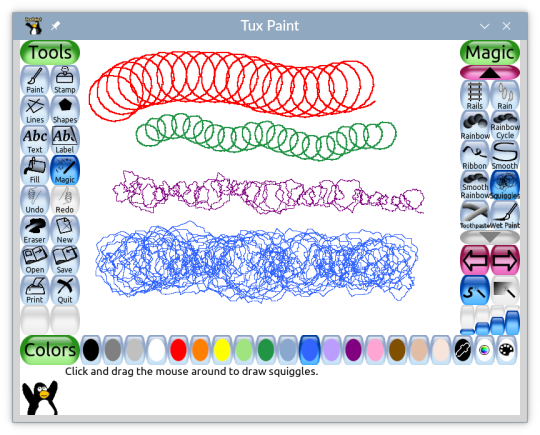
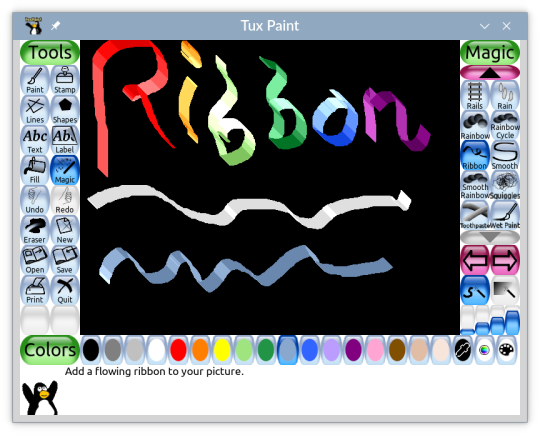
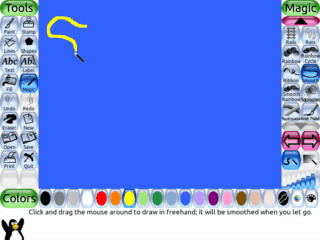
It is now possible to use an existing Tux Paint drawing as a template image, which may be used as the background of new drawings. From the "Open" dialog, choose the "Template" option, then find the newly-created template within the "New" dialog.
The Eraser tool has gained a set of soft-edged shapes, which are useful for more subtly revealing a background template after drawing over it.

Font Setting
Tux Paint offers a new option to customize the font used in its UI (button labels, pop-up dialog box text, and help text at the bottom), enabling users to choose fonts designed for literacy use, such as Andika or OpenDyslexic — or just something fun!

Also, the default font used by Tux Paint now varys under certain locales, to improve legibility (e.g., DejaVu Sans for English and most other Latin languages, Baekmuk Gulim for Korean, Gen Jyuu Gothic for Japanese, Raghindi for Hindi, etc.)
Other Improvements
The "Erase" function — which is used to delete saved drawings via the "Open" dialog or exported templates via the "New" dialog — may be disabled via a new configuration setting.
The appearance of the buttons used to select the rainbow palette (HSV color picker) and color mixer has been improved.
Other improvements, bug fixes, and localization updates are also part of this release. Release notes for each component contain a complete list of changes:
Tux Paint change log
Tux Paint Config. change log
Tux Paint Stamps change log
A Free Download
Tux Paint is available for download, free of charge, from the project's website: https://tuxpaint.org/. Tux Paint is released under an open-source license. It does not utilize networking, and hence does not contain in-app advertising or in-app purchases, nor does it do any kind of user tracking.
Version 0.9.31 is currently available for Microsoft Windows, Red Hat Linux, various Linux distributions (via Flatpak), and as source code.
For further information, visit https://tuxpaint.org/. To learn how to contribute to Tux Paint, visit: https://tuxpaint.org/help/. You can also follow Tux Paint on various social media platforms; see https://tuxpaint.org/contact/#social.
Artist Interviews
Over a dozen prolific Tux Paint artists have been interviewed by the project's creator, who asked them to share a little bit about themselves, their inspiration, how they came across the software, and how they use it. They have been posted to a new Interviews section of the Tux Paint website: https://tuxpaint.org/interviews/
###
This version of Tux Paint was made possible by Bill Kendrick, Mark Kim, & TOYAMA Shin-ichi; with localization updates by Jacques Chion, Sveinn í Felli, Olesya Gerasimenko, & Karl Ove Hufthammer; and ports by Tim Dickson, Mark Kim, Pere Pujal i Carabantes, Luc Schrijvers, TOYAMA Shin-ichi, & Will Thompson.
Trademark Notices: Flatpak is a registered trademark of GNOME Foundation. Linux is a registered trademark of Linus Torvalds. Microsoft, & Windows are registered trademarks of Microsoft Corp. Red Hat is a registered trademark of Red Hat, Inc.
Press Release by: Bill Kendrick <[email protected]> & Melissa Hardenbrook.
16 notes
·
View notes
Text
#Hire Remote Developers#Hire Remote Development Team#Remote Software Developer#Hire Remote Programmers#Hire Software Programmers
2 notes
·
View notes
Text
Sachin Dev Duggal | The Rise of the AI Product Manager: Natasha's Story
Builder.ai, an AI-Powered platform for composable software which was founded by serial entrepreneur Sachin Dev Duggal to make it simple and affordable for average people and businesses to turn their ideas into software, has announced a Series D financial commitment of more than $250 million.
Over $450 million has been raised in Series D funding for Builder.ai, an AI-powered platform for modular software. The fund will be utilized to conduct research and development for Natasha, the company's AI Product Manager, and the platform's comprehensible app/software platform. Natasha manages duties like feature mapping and asking teams that interact with customers questions. Natasha's beta version was released in September 2021. The world's first AI-powered product manager, Builder Studio 3.0 from Builder.ai, intends to democratize software development. According to Sachin Dev Duggal, Chief Wizard and Founder of Builder.ai, the company intends to offer its customers a fully realized product that serves the customers the utmost control over the future. This in a way shows the commitment towards the business operations for customer-oriented goals.
Thus, Natasha, The AI Product Manager does feature mapping and also interacts with the customers. Sachin Duggal aims to utilize the funds towards the upgradation of Natasha, by which it will perform its duties more efficiently.
#ai#artificial intelligence#sachin dev duggal#technology#sachin duggal#builder.ai#innovation#sachin dev duggal builder.ai#sachin duggal builder.ai#software development
2 notes
·
View notes